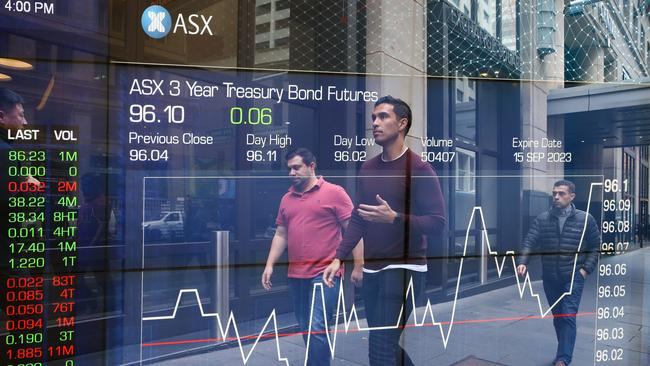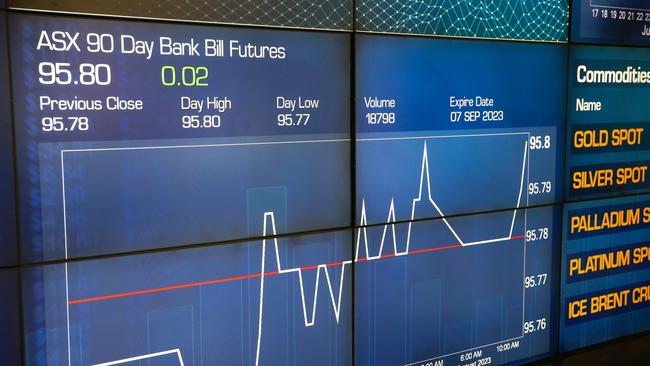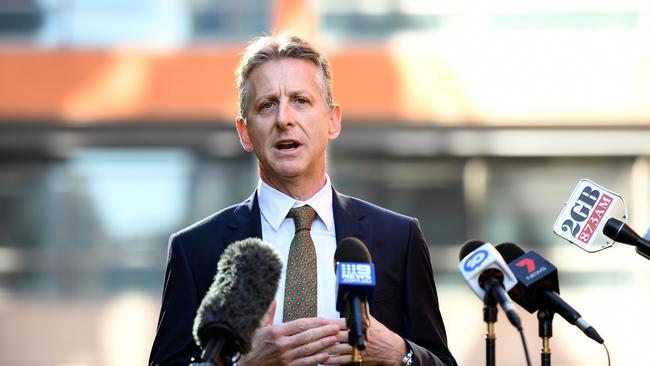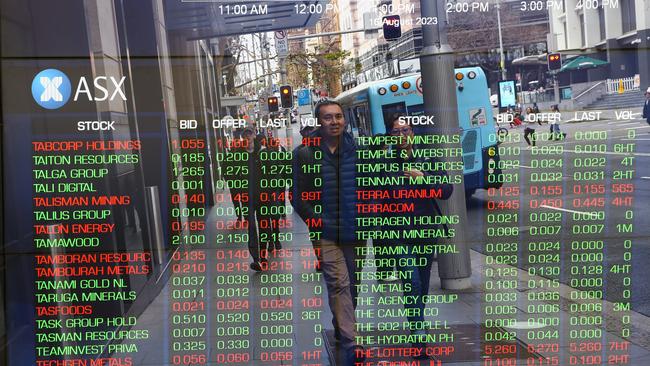ASX 200 sees worst drop since July, as Dexus records heavy loss
Australian stock market records worst day in six weeks, with all sectors except real estate taking a dive.
The Australian market experienced its worst fall since July, dropping 1.5 per cent at closing on Wednesday on the back of more poor data from China and a weaker Wall St.
The fallout from the companies earning reports also pushed the ASX 200 to close down 110 points, or 1.5 per cent lower to 7195.
Every sectors except real estate lost momentum, according to CommSec, as companies continued to report their results.
“Tech was the worst performing sector while miners and banks weighed most on the index,” CommSec said.

China’s faltering post-Covid economic recovery is causing concerns. It unexpectedly cut a key interest rate on Tuesday and skipped a report on how many of its younger workers are unemployed.
Meanwhile in the US, stronger than expected retail figures for July saw Wall St drop 1.1 per cent.
On the ASX, the worst performing companies included, Fletcher Building down 9.3 per cent and Syrah Resources with a 6.2 per cent drop on Wednesday.
Steep loses were also recorded for miners BHP (-3.4 per cent) and Fortescue (-3 per cent).
The real estate sector gained just 0.05 per cent, the only sector to record not drop.

Meanwhile, as the country continues to grapple with a cost of living crisis, Prime Minister Anthony Albanese agreed to offer an additional $3bn to the states and territories if they achieve more than their share of the one million well-located homes target under the National Housing Accord.
The National Housing Accord target also rose to 1.2 million new homes over the next five years, up by an additional 200,000 new homes.
It comes as many companies work to figure out the best way to get employees back into the office, following the pandemic restrictions of working from home requirement.
Office and industrial property owner and manager Dexus continues to struggle, having reported a $752.7m loss for the financial year just ended.
The new figures are down from a $1.6 billion profit in 2022.

Despite this, Dexus Chief Executive Officer, Darren Steinberg said the company delivered $1.8bn in asset sales from the balance sheet portfolio.
“Operating in an uncertain economic environment remains challenging. In this environment we have continued to diversify our capital sources, and grow and diversify our funds management business, while we reweigh the Dexus portfolio,” Mr Steinberg said.
“We have announced $1.8bn of balance sheet divestments since the FY22 result, maintaining a strong balance sheet and enabling us to recycle capital into higher returning opportunities.”

Moody’s Investors Service Vice President Saranga Ranasinghe said the Dexus’ earnings for the 2022-23 fiscal year are credit positive.
“The results highlight the resilience of Dexus’ good-quality portfolio of assets across office and industrial, despite a challenging environment,” she said.
“Dexus has increased its office occupancy levels to 95.9 per cent, well above the market average, with the portfolio benefiting from a flight to quality.
“Despite office leasing incentives in all capital markets remaining elevated, Dexus recorded a 5.6 per cent increase in effective like-for-like income in its office portfolio.
“Dexus carried out around AUD $1.8bn of asset divestments and will have around AUD $3.3bn in debt headroom to fund the committed development spend of around AUD $2.3bn over the next five years.
“In addition, Dexus’ gearing of 27.9 per cent is below its target level of 30 per cent to 40 per cent.
“If the total committed development spend is debt funded, the REIT’s gearing will increase, but will remain within its target range.
“We expect Dexus to fund its development pipeline in a prudent manner, such that its financial profile remains within the parameters set for the rating.”





